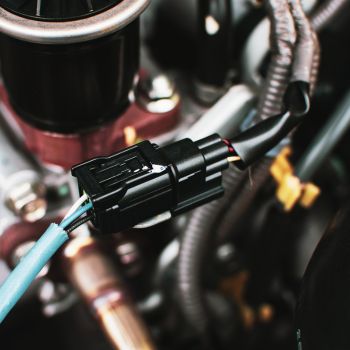Like any other component in your car, sensors can be affected by wear, dirt, or electrical issues. When they start to fail, it can lead to problems that impact your vehicle’s overall performance. Understanding how these sensors work and what to watch for can help you keep your car running smoothly. The Engine Control Module (ECM) has been a crucial part of vehicle design since the 1980s. It works in conjunction with the OBD-II system to collect and analyze data from various sensors, adjusting engine performance, fuel efficiency, and emissions accordingly. Some of the most important sensors include: Sensors can become dirty, corroded, or damaged due to exposure to heat, moisture, or chemicals. Electrical problems, such as loose connections or failing batteries, can also interfere with their ability to send accurate data to the ECM. When a sensor starts to fail, it may trigger one or more of the following symptoms: If you're experiencing any of these issues and aren't sure what's causing them, it's best to have a professional inspect your vehicle. At DaSilva’s Auto Body, our technicians perform thorough diagnostic tests to identify and resolve sensor-related problems. Don’t ignore the signs—early detection can save you time, money, and headaches down the road. Contact us today to schedule a check-up! Being a fastest growing enterprise, we are focused to offer Cationic Polyacrylamide Anti Clay Agent. The offered chemical is easily soluble in water and not soluble in some organic solvent like ethanol and acetone. This chemical is It is easily soluble in water and not soluble in some organic solvent like ethanol and acetone. And it is innocuous, colorless, flavorless and easy to absorb damp. It works as flocculant for paper mills. Beside this, the provided Cationic Polyacrylamide Anti-Clay Swelling Agent is available in numerous safe packaging options to meet the wide demands of our customers at market leading prices. Anti Clay Agent,Chemical Anti-Clay Agent,Anti Sagging Agent,Anti Mud Agent Liaoning Kelong Fine Chemical Co.Ltd. , https://www.kelongchemy.com Modern vehicles are equipped with a network of sensors that continuously monitor key systems like oil levels, tire pressure, and engine performance, sending real-time data to the Onboard Diagnostic Computer (OBD-II), which is typically part of the Engine Control Module (ECM).
Modern vehicles are equipped with a network of sensors that continuously monitor key systems like oil levels, tire pressure, and engine performance, sending real-time data to the Onboard Diagnostic Computer (OBD-II), which is typically part of the Engine Control Module (ECM).How Car Sensors Work
Common Sensor Issues and Signs
Common Car Sensor Problems
